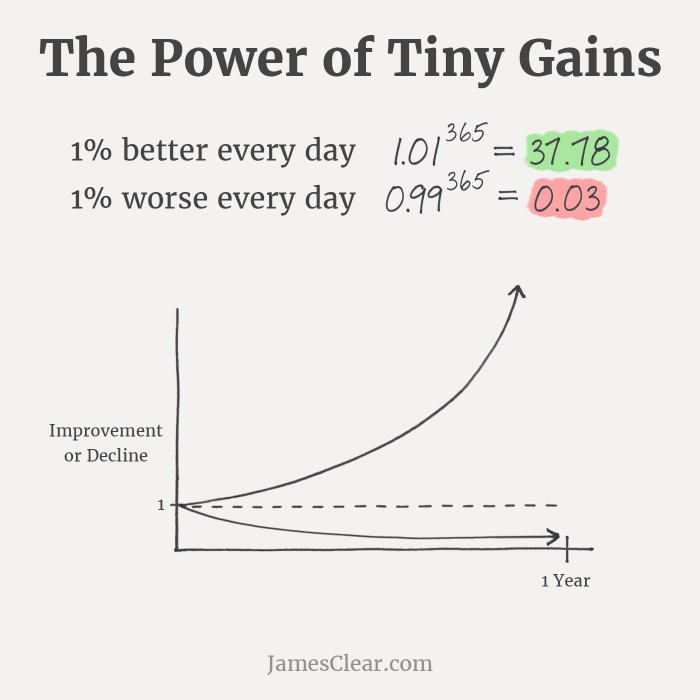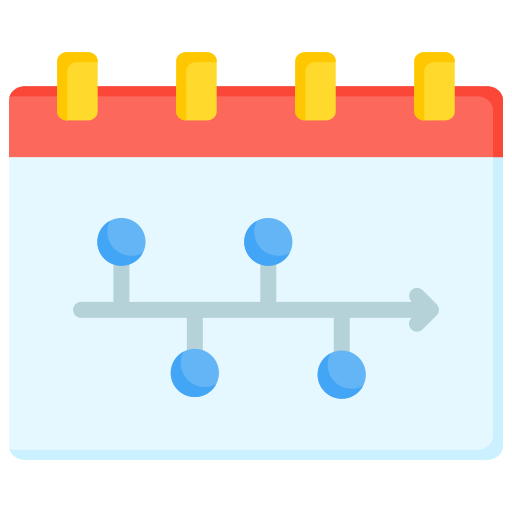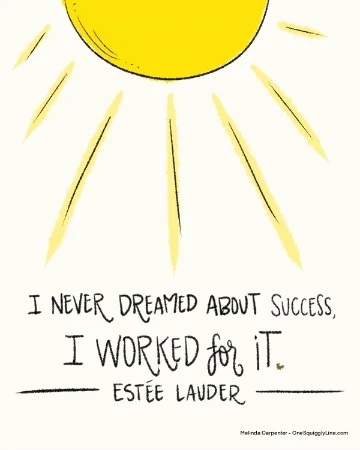It's Monday again! Are you excited to go to work?
Maybe you are, and that's why you are here to learn how to be your best self at work.
Or...you aren't, and that's why you are here to get some help.
Which one are you?


We spend an average of 90,000 hours working. That's a LOT!
If you want to make these hours count, start building habits that will help you succeed and have fun at work.
As a professional who's been working for nearly a decade now, these three things helped me thrive and build the habits of successful people:
Set the right "WHY".
Aim for 1% better every day.
Create a system that works for you.
Set the Right "WHY"

Why do you go to work?
When I was still starting out, I had a simple reason. I wanted to earn just enough so I could provide for my family's needs, while also contributing positively to society.
Your WHY is your motivation. Some also call it your passion. It's the reason you'll get out of bed every morning. Here are some possible motivations:
I want to help my family.
I want to be an entrepreneur.
I want to contribute to society.
I want to be rich.
I want to enjoy life.
Your WHY can change over time, but to stay engaged at work, have a good motivation that truly resonates with you. It can be simple or deep. What matters is that it matters to you.
What if you don't have WHY?
Don't panic! It's perfectly human not to feel motivated at some points in your life. I've been there, too. Here's another way to think about it: if you don't have your WHY, follow what you're good at.
Tech founder Ben Horowitz's graduation speech captures this advice quite nicely.
What are your strengths?
What do people say you are good at?
What do you enjoy doing?
Aim for 1% Better Every Day
Becoming 1% better every day will set you up for success.
Why 1%?
Author James Clear provides a good explanation for what he calls "tiny gains".

When you aim for 1% better every day, in one year, you'll be more than 30% better.
The opposite? Doing 1% worse every day won't lead to progress.
Work habits vary per person.
Don't be pressured to imitate the exact habits of other people, like getting up at 4 AM and getting things done by 7 am if you're clearly not a morning person.

Build these habits of successful people to get 1% better every day:
Deliver your tasks on time.
Communicate effectively with your bosses and colleagues.
Know when to work independently and when to ask for help.
Build Better Habits
By aiming to be 1% better, you can build any habit to succeed at work and in life!
Example: You were given the task to organize your team-building event happening in two months. You can work with your two teammates, and your manager told you to ask for help as needed.
 Photo by UK Black Tech on Unsplash
Photo by UK Black Tech on UnsplashHow to be 1% better:

Believe that you can build these habits. This is important! When we don't believe in ourselves, we will struggle to achieve our goal.

Clarify what's expected. What exactly are the tasks that you need to accomplish? You can talk to your manager about it. You can also clarify what you expect from your manager. If the expectation from you isn't clear, you'll also struggle.

Break down the task into smaller steps. Look at which steps you can do and the steps you can ask for help with from your teammates.

Set a timeline for each step. This will help you get things done on time.

Ask your team for help. A problem came up, and you can't resolve it? Reach out to teammates.

Celebrate milestones. Reward yourself for a job well done. Finished all the logistics preparation? Celebrate it with your team! Finally done with the event? Take a vacation!
Quiz
You want to deliver well on your tasks as part of a bigger project. Which steps can help you work effectively with your team? Select all that apply:
Create a System that Works forYou
The habits of successful people are formed through repeated practice!
They say, "21 days make a habit." Is this true?
Maybe you've heard of this phrase, but it's a myth! It can take shorter or longer, but what can help you build the right habits is setting up a system to reinforce habits that you want to build.
What is a system?
After you wake up, what do you do next? Fix your bed, brush your teeth, get exercise, and prepare to work. You do this between 7 am to 8 am. This is a system.
By incorporating new habits into your work, create a system that's easy for you to do.
Use tools like the Pomodoro Technique or time blocking. For some, a to-do list already works, so you can definitely do that, too!
Pomodoro Technique

How it works: A time-management technique where you work in intervals of 25 minutes (or longer, up to you), then you take a short 5-minute break (your reward).
How to use it: Set it up using your phone timer or an app and aim to focus on the task in 25 minutes. After the interval, take a break. Then do it again. Adjust the intervals as you see it working for you. Don't miss the break. It's important!
Time Blocking
How it works: You divide your day into blocks dedicated to accomplishing a specific task or group of tasks. This allows you to prioritize tasks for the day vs a to-do list that can be endless!
How to use it: Using a digital or paper calendar, assign blocks of time to activities — work, personal, and rest time. I like to color-code my schedule but this is up to you!
What if it's not really working?

Maybe you've tried all these steps and you still feel like you're not succeeding.
Relax.

While you can do your part, sometimes you also have to check if your work environment allows you to thrive.
Do you feel empowered to take on responsibilities?
Do you feel supported by your managers and teammates?
Are you able to express your genuine self at work?
If you answered YES to all of these, you are in a good place. If it's NO, you should see if it's time to move on and find a workplace that enables you to practice the habits of successful people.
It's Not a One-Size-Fits-All Approach
What if you find it hard to follow a system?
Don't worry. Treat habit building as an experiment where you get to feel what works for you and what doesn't. As you make changes in your habits, try to notice:
What activities allow you to be in the zone, fully focused at work?
What activities drain you?
In using Pomodoro or time blocking, are your work periods too long or too short?
Observe how you feel, think, and act as you are working so you can keep the good habits in and leave the bad habits out.
Roger Federer, a former professional tennis player and World No. 1, spoke to graduates about the habits that worked for him.
Here are some highlights from Roger's speech that can help you in both work and life:
Lesson 1: Effortlessness is a myth. To build the habits of successful people, you need to put in the effort and believe in yourself.
Yes, talent matters...But talent has a broad definition. Most of the time, it’s not about having a gift. It’s about having grit...But in tennis...like in life...discipline is also a talent. And so is patience. Trusting yourself is a talent. Embracing the process, loving the process, is a talent. Managing your life, managing yourself...these can be talents, too. Some people are born with them. Everybody has to work at them.
Lesson 2: Move on. Made a mistake at work? Learn not to dwell on it.
In tennis, perfection is impossible...In the 1,526 singles matches I played in my career, I won almost 80% of those matches...Now, I have a question for all of you...what percentage of the POINTS do you think I won in those matches? Only 54%. In other words, even top-ranked tennis players win barely more than half of the points they play. When you lose every second point, on average, you learn not to dwell on every shot.
Lesson 3: Life is bigger than your job. And bigger than your office space, too!
But even when I was in the top five...it was important to me to have a life...a rewarding life, full of travel, culture, friendships, and especially family...I never abandoned my roots, and I never forgot where I came from...but I also never lost my appetite to see this very big world.
Take Action

Make an effort to build the habits of successful people at your job today!
Your feedback matters to us.
This Byte helped me better understand the topic.
